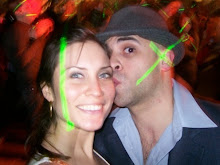Unsworth, John. "Second-Generation Digital Resources in the Humanities"
http://www.iath.virginia.edu/~jmu2m/DRH2000.html
In this keynote address, Unsworth briefly defines and characterizes second generation digital resources. They are those resources which "are born digital" (complex collections including commentary, annotations, apparati, etc...) and make use of first generation digital-resouces (digitizations of physical artifacts), thus mirroring to an extent the traditional academic distinction between primary and secondary sources. The flourishing of such projects (like the online archives we've been looking at) highlights several changes in the artstic, scholarly, and editorial communities, but, more importantly, it consequently calls for several others: publishers will "have to start thinking more like libraries", libraries are faced with need of incorporating this new kind of publications into their collections, and authors (who will suddenly become a nuisance not only for publishers, but also for libraries!) need to find ways to receive the just credit for their digital work while engaging in "ten-year projects in a medium that seems to change every ten minutes", at the same time dealing with the necessity of an impersonal, as-objective-as-possible language (and "the death of ambiguity is also the death of nuance, metaphor, and poetry"...). Some of the advice that Unsworth offers to the parties involved is based precisely on these parties making an effort to cooperate with one another: "We need to do some end-to-end projects that involve authors, publishers, and libraries in a coordinated (and documented) joint effort [...] [and] Failing that, we need to do more bilateral projects that involve, say, libraries and scholars or scholars and publishers". Unsworth's ideas surely sound good on paper; translating them into reality in such a $$$-driven society will surely result a much grimmer picture. Bot more importantly, is there not a hint of hypocrisy in Unsworth's "brotherly love"-infused message? As an ignoramus in the field, I must abide by what I've been hearing in this class, but if it is indeed true that there is a competitiveness, which borders on spite and bitterness, between different institutions behind some of the most important digital editing projects (say, the Virginia people and the UNC people), how can we expect a collegial cooperation between authors, libraries, and big-buck publishers when there isn't even such a relationship between authors and authors?
Monday, April 7, 2008
Subscribe to:
Post Comments (Atom)

1 comment:
it is i, your roommate from freshman year.
you once left a gallon of milk on the floor for weeks.
that was awesome.
lol
matt
Post a Comment